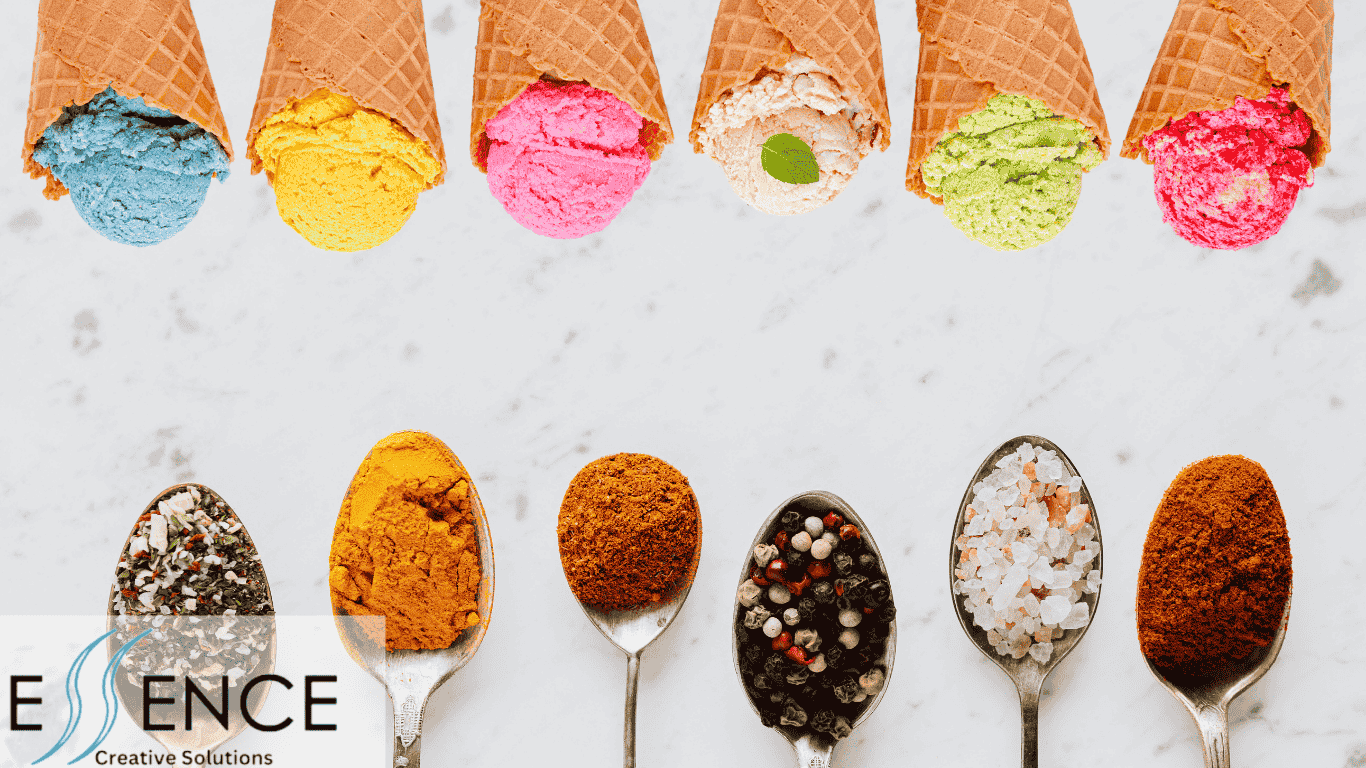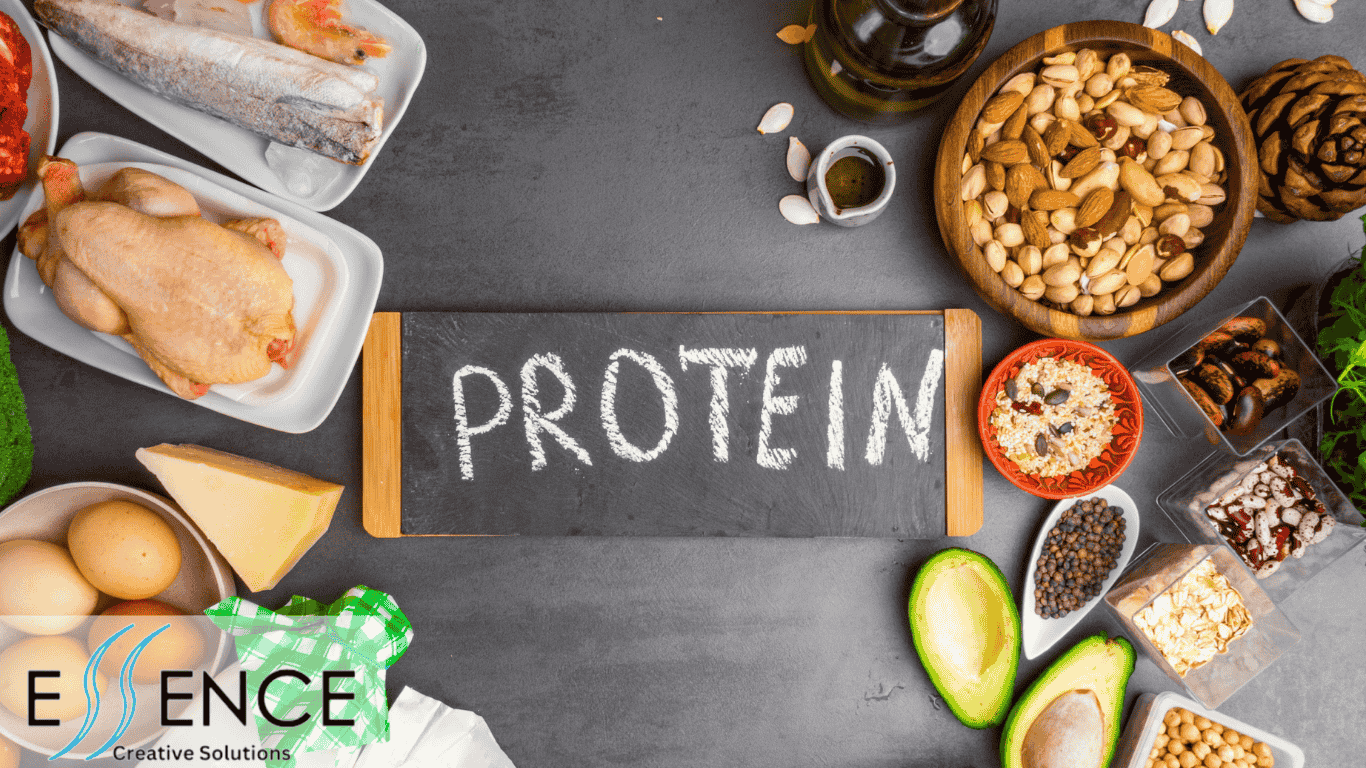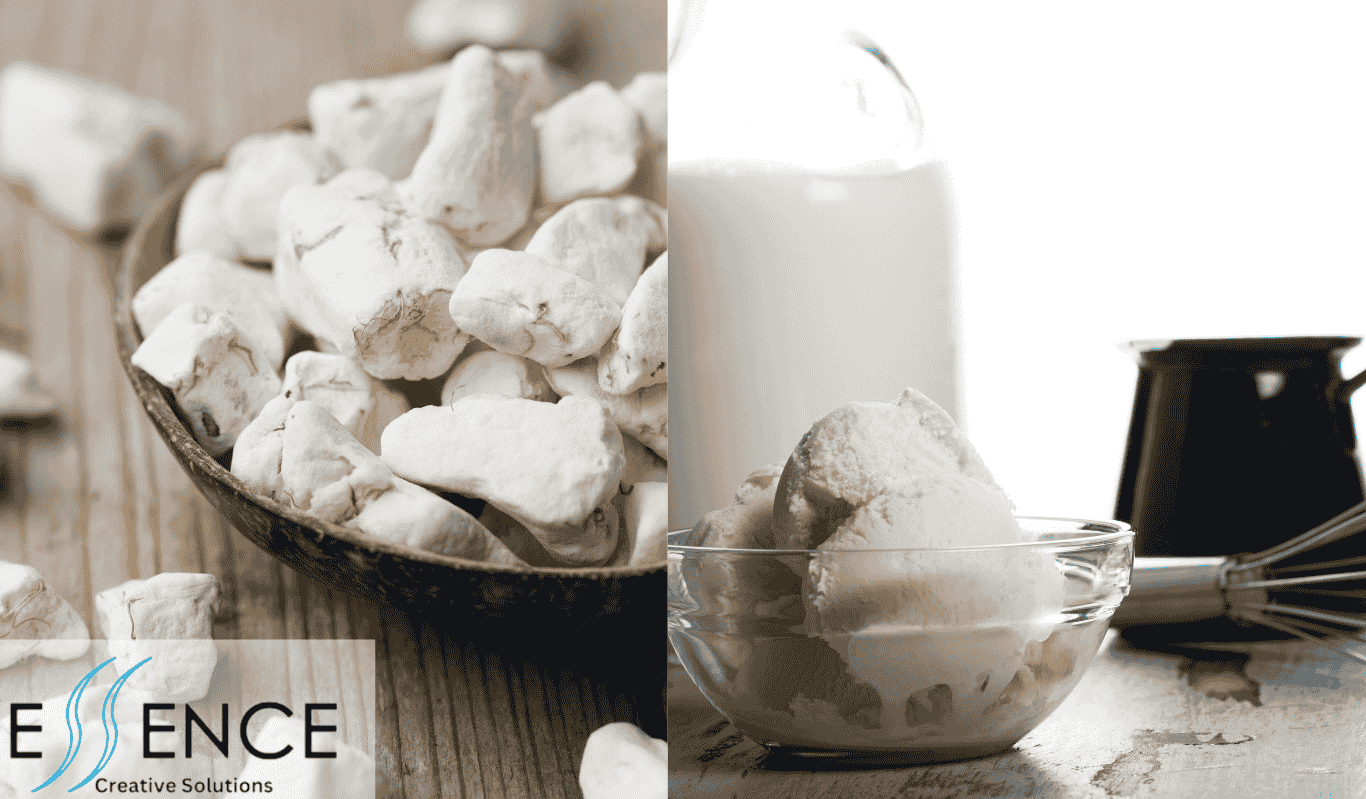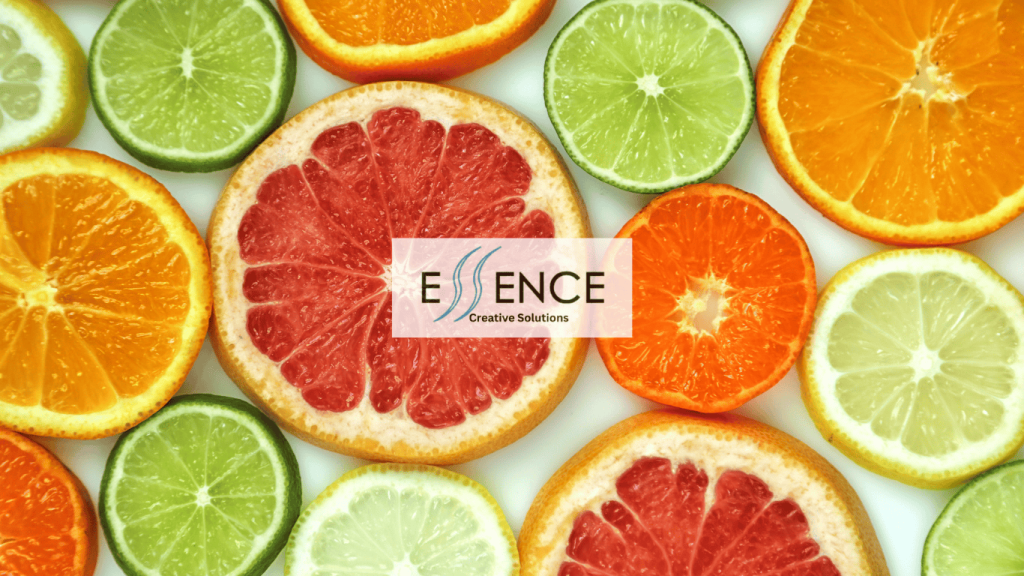Flavors are important in enhancing the taste and attractiveness of our food. Manufacturers incorporate natural or artificial flavouring ingredients into processed foods, beverages, and snacks to improve their sensory attractiveness. But how are Natural and Synthetic Flavours in our food different from each other, and how do they affect the foods we consume? Let’s talk more about their possible health Outcomes.
At Essence Creative Solutions, your digital marketing agency in Indonesia and Singapore, we explore the world of natural and artificial flavours in food. Synthetic or natural flavours enhance the tasting experience. Come learn about the science underlying smell and taste with us.

What Are Natural Flavors?
As per the FDA Code of Federal Regulations, natural flavours are primarily produced using compounds that are naturally derived from these plant or animal sources. Furthermore, the flavours are extracted using methods that preserve their quality and authenticity.
- Notably spices
- Fruit or fruit juice
- Including vegetables or vegetable juice
- Edible yeast, herbs, bark, buds, root leaves, or plant material
- Dairy products, including fermented products
- Meat, poultry, or seafood
- And eggs
You can roast or heat the animal or plant material to produce these flavours. To satisfy consumer demand for natural flavours, producers are also increasingly utilising enzymes to extract flavour compounds from plant sources. Natural flavours aim to enhance flavour rather than necessarily add nutritional value to food or drink. Food and beverages frequently contain these flavourings (Spritzler, 2023).

At Essence Creative Solutions, we would like to share our thoughts about the rich authentic flavours made of natural and synthetic ingredients. Elevate your products with the essence of real taste—call us today to learn more!
What Are Synthetic Flavors?
Some people have misconceptions about synthetic flavours just like they do about natural flavours. Synthetic flavours also known as artificial flavours, consist of chemically synthesised compounds that mimic the taste of natural ingredients. Scientists produce these flavours in labs in order to replicate or enhance food flavours while also ensuring stability and consistency.
Any flavorist will tell you that the same compounds found in one source can also occur naturally in other sources, sometimes in much higher concentrations or more effectively extracted forms (Natural Vs. Artificial Flavors | Partner With Flavorman, 2025).
- Vanillin – the artificial alternative to natural vanilla extract.
- Ethyl butyrate – which gives orange juice its fruity aroma.
- Benzaldehyde – which mimics almond flavor.
- Methyl anthranilate – which contributes to grape flavour in candies.

If your favourite flavour of ice cream is vanilla, it’s probably artificial. The world’s supply of vanilla beans is simply insufficient to satisfy the high demand for the flavour. Fortunately, the substance that gives vanilla its distinctive flavour—vanillin—can be produced artificially from a variety of sources, including paper pulp. Although the vanillin extracted from either source is identical chemically, there will undoubtedly be a difference in price and accessibility (Natural Vs. Artificial Flavors | Partner With Flavorman, 2025).
In this Article, we at Essence Creative Solutions – a digital marketing agency in Singapore and Indonesia – help you understand the balance between synthetic and natural flavours.
Are Natural Flavors Healthier than Synthetic Flavors?
Natural flavours are healthier than Synthetic ones, most people believe, but that is not always the case. Both are safety tested before use in foods. Natural flavours are not necessarily additive-free, and Synthetic flavours may be cleaner some of the time. The most important thing is how much and how often.

In the food business, both natural and synthetic flavours are important. There are times when natural flavours are better than man-made ones. They come from plants and animals. Most of the time, synthetic flavours are better and cost less. It’s important to eat flavoured foods in moderation and make smart decisions. Understanding the differences between natural and synthetic flavours allows consumers to make informed choices and enjoy their food with trust.
Our digital marketing agency, located in Singapore and Indonesia, specialises in making your product clear and impactful to your target audience. Helping your clients understand synthetic and natural flavours and creating marketing campaigns that are aligned with the current trends.
Reach out to Essence Creative Solutions today to know more!
References
(Natural Vs. Artificial Flavors | Partner With Flavorman, 2025)




Leave a Reply